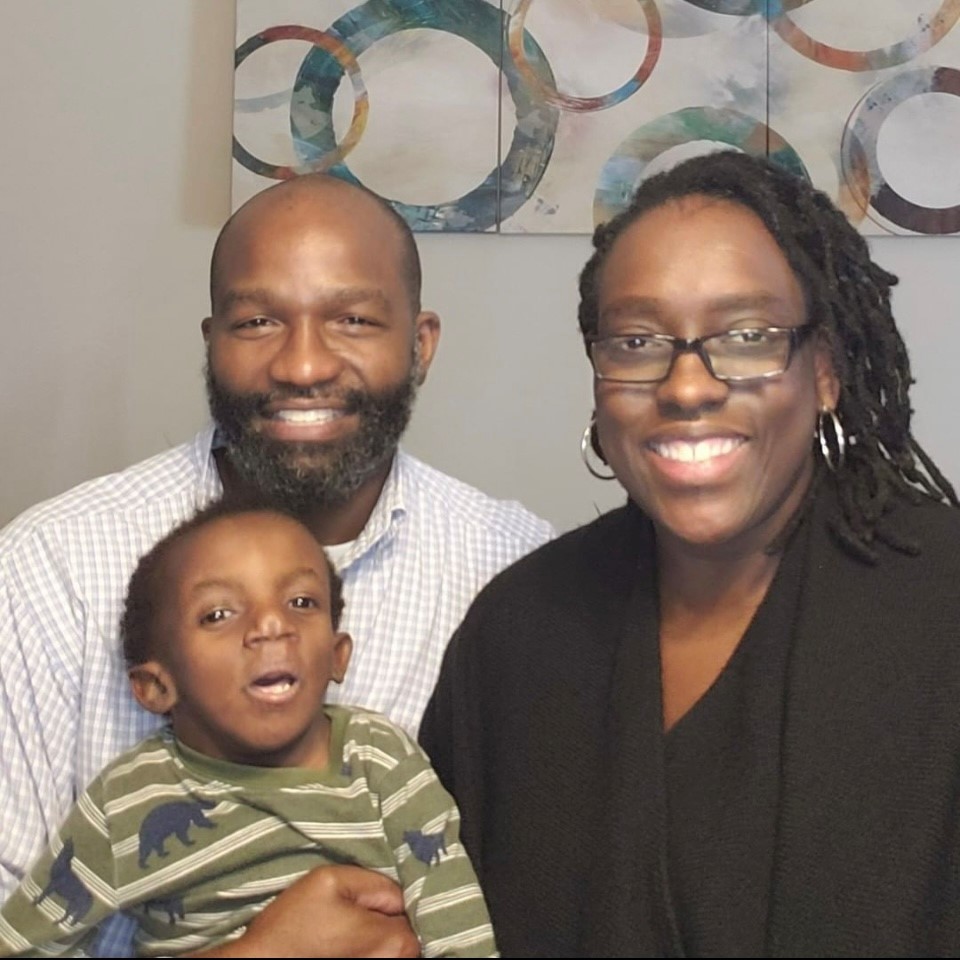This story originally appeared on AL.com.
On Mother’s Day in 2014, I found out I was pregnant. For me, the existential dread set in just as deeply as the morning sickness.
Motherhood and its crushing weight had been drilled into me my entire life. I told myself it was too hard, that I just wasn’t strong enough to handle parenthood and all its pressures. And I feared that my family’s legacy would repeat itself.

One summer day in 1932, while pregnant with her 14th child, my great-grandmother Maude Wakefield finally reached her breaking point. She set off behind her home in Winston County and climbed high into a tree on my family’s land. She had been pregnant regularly since 1906 and decided enough was enough.
So she offered an ultimatum: She would return to her infinite load of daily household duties only if my great-grandfather would promise that this was it – no more babies. Not long after what would become her infamous last stand, she passed away due to a stroke worsened by postpartum hypertension. My grandmother was left to live without her mother at age 12.
Nearly a century later, during a routine blood pressure check, I was deemed high risk for the same life-threatening condition that killed my great-grandmother.
I didn’t want that same lonely future for my daughter.
The life-saving power of health coverage
Fortunately, I had health insurance. My blood pressure continued to rise to dangerous levels as my pregnancy progressed. After reviewing my family history, my doctor decided it was best for both me and the baby to deliver early under supervision to prevent preeclampsia, a condition that can lead to maternal death during or after delivery.
Because I had access to care, I was easily treated, and it ended up saving my life. Now, when I take my blood pressure pill every morning, I can’t help but think how things could have been different for my great-grandmother.
Hope can be hard to come by in Alabama. Stories like mine remind us how far we’ve come. But when you’re left without coverage, it’s never as simple as a pill and a copay.
Medicaid covers about half of all births in Alabama. And for many new moms, health coverage expires shortly after the baby is born.
Medicaid postpartum coverage extension is a step in the right direction
Some good news could be coming as soon as this fall. On April 7, Gov. Kay Ivey signed a new General Fund budget into law. It includes an extension of postpartum Medicaid coverage from 60 days of coverage to 12 months. This life-saving change will provide thousands of families consistency in care during the critical time after childbirth.
Alabama has the nation’s third-worst maternal death rate. Each year, roughly 40 new mothers in the state die within one year after delivery. Nearly 70% of those deaths are preventable, the state Maternal Mortality Review Committee found. And the toll on Black mothers is nearly three times that on white moms.
In Alabama, children living in households with low or middle incomes are widely eligible for coverage through Medicaid or ALL Kids, Alabama’s Children’s Health Insurance Program (CHIP). For adults, it is much harder to qualify for Medicaid. Just 17% of Medicaid participants in Alabama are adults under age 65 who do not have a disability.
Our state has some of the most stringent income limitations for Medicaid. For example, a single parent of two without a disability is ineligible if they make more than $346 a month. These harsh Medicaid eligibility limits mean affordable health insurance is simply not an option for many people in our state.
Medicaid expansion would ensure coverage for more than 340,000 Alabamians, including those left uninsured by these tight limits. These folks do not qualify for Medicaid, but they are unable to afford a marketplace plan or other private coverage. However, the new postpartum coverage extension means there will now be a brief inclusive window during and after pregnancy.
A lifeline in a time of need
Moms like my friend Brittany Kendrick of Blountsville call this coverage a lifeline.
Brittany lost her fiance, Dylan, in a car accident two months before her daughter Khaleesi was born. They had everything planned out, but her health insurance expired after Dylan’s death. Brittany turned to Medicaid to cover the costs.

Then, in August 2021, she made the hour-long drive to Children’s Hospital in Birmingham, where she found out her newborn had contracted COVID-19. After getting emergency care, her baby made a recovery. But as soon as they got home, Brittany tested positive and started to feel worse.
Being able to see a doctor and seek treatment quickly was just the blessing they needed during what Brittany calls the hardest year of her life.
“Medicaid paid for all of our hospital and doctor bills,” Brittany said. “It gave me a chance to use the money I had in savings for a safer car and a new apartment for me and the baby.”
Brittany hopes she will be among those eligible for the new postpartum extension. Having consistent care has brought balance to her life in more ways than one. “I can take medicine for anxiety and depression now. I need that, to stay strong for her,” she said.

‘Why not offer this to all mothers?’
Extending Medicaid coverage doesn’t just support new or single parents.
Sarita Edwards of Madison is a mother of five and founder of the E.WE Foundation, a health care advocacy organization. She began her foundation after receiving a rare prenatal diagnosis of Edwards’ Syndrome (trisomy 18) for her son Elijah. The high mortality rate associated with her son’s diagnosis meant her family racked up thousands in medical debt before baby Elijah was even born.

Sarita says every day with Elijah has been a juggling act. Elijah’s condition is terminal, and his care can be exhausting and expensive. She now spends her time advocating for more equitable treatment and access in health care. She knows our leaders can do more, because she’s seen it firsthand.
“I know what our state can do when offering care to mothers and children with rare diseases,” Sarita said. “Why not offer this to all mothers?”

The new General Fund budget includes more than $8 million to extend Medicaid coverage for 12 months after childbirth. But the funding is guaranteed only for one year – on a trial basis.
This year marked another Mother’s Day when Alabama mothers are still dying from pregnancy and childbirth at twice the national rate. Reliable health coverage – and the access to care that comes with it – can prevent many of those deaths. Sarita sees no reason to hold off on making Medicaid’s postpartum coverage extension permanent.
“Our babies are taken care of, but what about the mothers?” Sarita asked. “I don’t know why it takes Alabama so long to do the right thing sometimes.”
About Alabama Arise and Cover Alabama
Whit Sides is the story collection coordinator for Alabama Arise, a statewide, member-led organization advancing public policies to improve the lives of Alabamians who are marginalized by poverty. Arise’s membership includes faith-based, community, nonprofit and civic groups, grassroots leaders and individuals from across Alabama. Email: whit@alarise.org.
Arise is a founding member of the Cover Alabama Coalition. Cover Alabama is a nonpartisan alliance of more than 115 advocacy groups, businesses, community organizations, consumer groups, health care providers and religious congregations advocating for Alabama to provide quality, affordable health coverage to its residents and implement a sustainable health care system.

